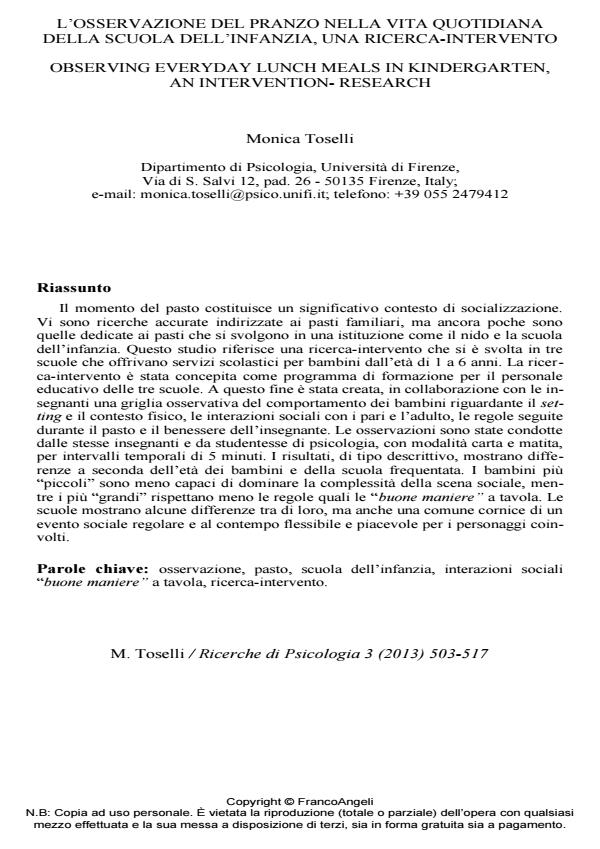Observing everyday lunch meals in kindergarten, an intervention- research
Journal title RICERCHE DI PSICOLOGIA
Author/s Monica Toselli
Publishing Year 2014 Issue 2013/3
Language Italian Pages 15 P. 503-517 File size 225 KB
DOI 10.3280/RIP2013-003007
DOI is like a bar code for intellectual property: to have more infomation
click here
Below, you can see the article first page
If you want to buy this article in PDF format, you can do it, following the instructions to buy download credits

FrancoAngeli is member of Publishers International Linking Association, Inc (PILA), a not-for-profit association which run the CrossRef service enabling links to and from online scholarly content.
Meal time offers an important social setting. There is some research about family meals, but there are still few studies concerning institutional meals, like those in kindergartens. This study reports an intervention research involving three schools having creche and preschool programmes. The intervention research was conceived as a training programme for teachers of the three schools. An observational grid was expressly created by study participants pertaining to children’s behavior, setting and physical context, social interaction with peers and teachers, rules followed during eating, as well as teachers’ well-being. Observations were conducted by teachers themselves and psychology students, marking on the spot, by paper and pencil, the occurrence of each item in each 5 minute lap. Descriptive results show differences depending on children’s age and school. "Younger" children are less able to cope with the complex social setting, while "older" ones less frequently comply to rules like "good manners" at table. Schools present slight differences, but show the common framework of a regular, and at the same time flexible, pleasant social event for all the involved participants.
Keywords: Observation, meal, kindergarten, social interactions, "good manners" at table, intervention- research.
Monica Toselli, L’osservazione del pranzo nella vita quotidiana della scuola dell’infanzia, una ricerca-intervento in "RICERCHE DI PSICOLOGIA " 3/2013, pp 503-517, DOI: 10.3280/RIP2013-003007